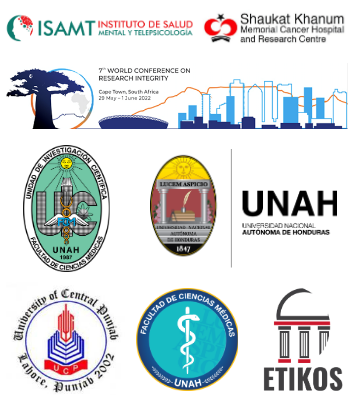

The current pandemic has posed direct ethical challenges setting the need for ethics preparedness to deal with a broad spectrum of issues. A surge in research activities focusing on Novel COVID-19 has left the ethics review bodies overwhelmed, working in difficult situations and facing the challenge of reviewing the studies with limited evidence of the safety and efficacy of interventions proposed.
The review process, conducted by diverse ethics review bodies across different regions, remained variable. In countries with decentralized and underdeveloped ethical review system, this review process remained inconsistent, resulting in inefficiency and duplication of efforts.
The Ethics review workshop held virtually on the 10th and 13th November, 2020 aimed to examine the ethics review process, identifying the variations and challenges that were present across LMICs. It provided an opportunity to voice and discuss the problems and solutions learned so far directed towards a more coordinated and efficient review system.
The workshop was chaired by Farah Asif from Shaukat Khanum Memorial Cancer Hospital and Research Centre in Pakistan and was also organised in partnership with
- Jackeline Alger from the Parasitology Service, Clinical Laboratory Department, at the Tegucigalpa University Hospital, from the Facultad de Ciencias Médicas, Universidad Nacional Autónoma de Honduras (UNAH), in Honduras
- Roxana Lescano who is the past Coordinator of the Peruvian IRB Network and current member of the Peru National COVID-19 IRB
- Julio Canario the Managing Director of Ethikos and the President and Executive Director of the Institute of Mental health and Telepsicology, in Dominican Republic; and last but not least,
- Sadia Zia, lecturer at the faculty of Life Sciences from the University of Central Punjab in Pakistan.
The workshop was attended by 171 participants from 46 countries.
Throughout the two-day workshop, case studies from various contexts were presented to facilitate discussion exercises, highlighting challenges and recommendations. Case study topics provided key insights into a range of topics including; presentations on COVID-19 challenges from the research review process in India, constitution of emergency review panel to review COVID-19 research in Peru and regulatory authorities and research ethics boards in central Africa.
Panellists
- Katherine Littler, Co-Lead, Global Health Ethics & Governance Unit, Research for Health Department, World Health Organization.
- Caesar Atuire, Senior Lecturer (University of Ghana), Visiting Fellow (All Souls College), Institutions: Department of Philosophy and Classics, University of Ghana; All Souls College, University of Oxford.
- Roli Mathur, Scientist 'F' & Head, ICMR Bioethics Unit, National Centre for Disease Informatics and Research (NCDIR) Indian Council of Medical Research.
- Dario Scaramuzzi, Partnership & Capacity Development Manager, R-Evolution Worldwide.
- Francis P. Crawley, Coordinator, European Fellowship in Research Ethics (EFRE), Executive Director, Good Clinical Practice Alliance - Europe (GCPA), Strategic Initiative for Developing Capacity in Ethical Review (SIDCER)
- Vina Vaswani, Director at the Centre for Ethics. Department of Forensic. Program Director of the Masters in Research Ethics. Yenepoya University. India
Workshop Agenda | Workshop Report
Ethics review preparedness Nov 10